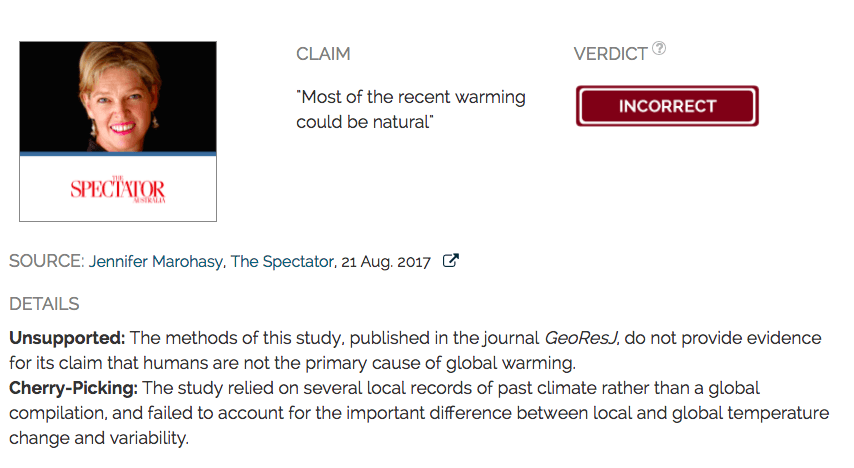
Incorrect claim that global warming is mostly natural was based on a study that can’t support that conclusion
Claim:
Most of the recent warming could be natural

Claim:
Most of the recent warming could be natural
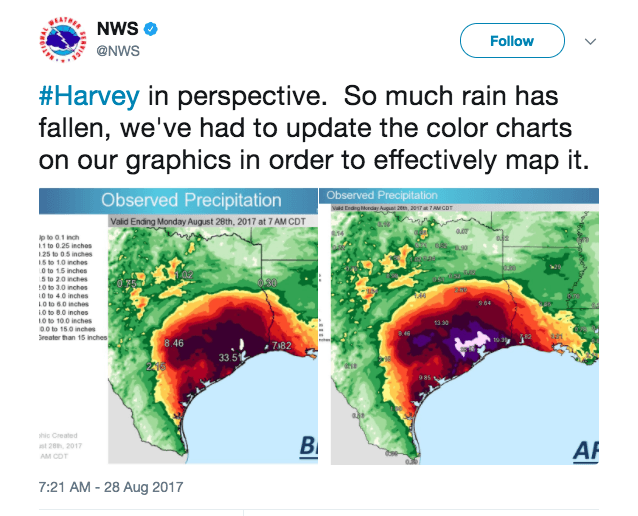
Claim:
[climate scientists] say that aspects of the case of Hurricane Harvey suggest global warming is making a bad situation worse.
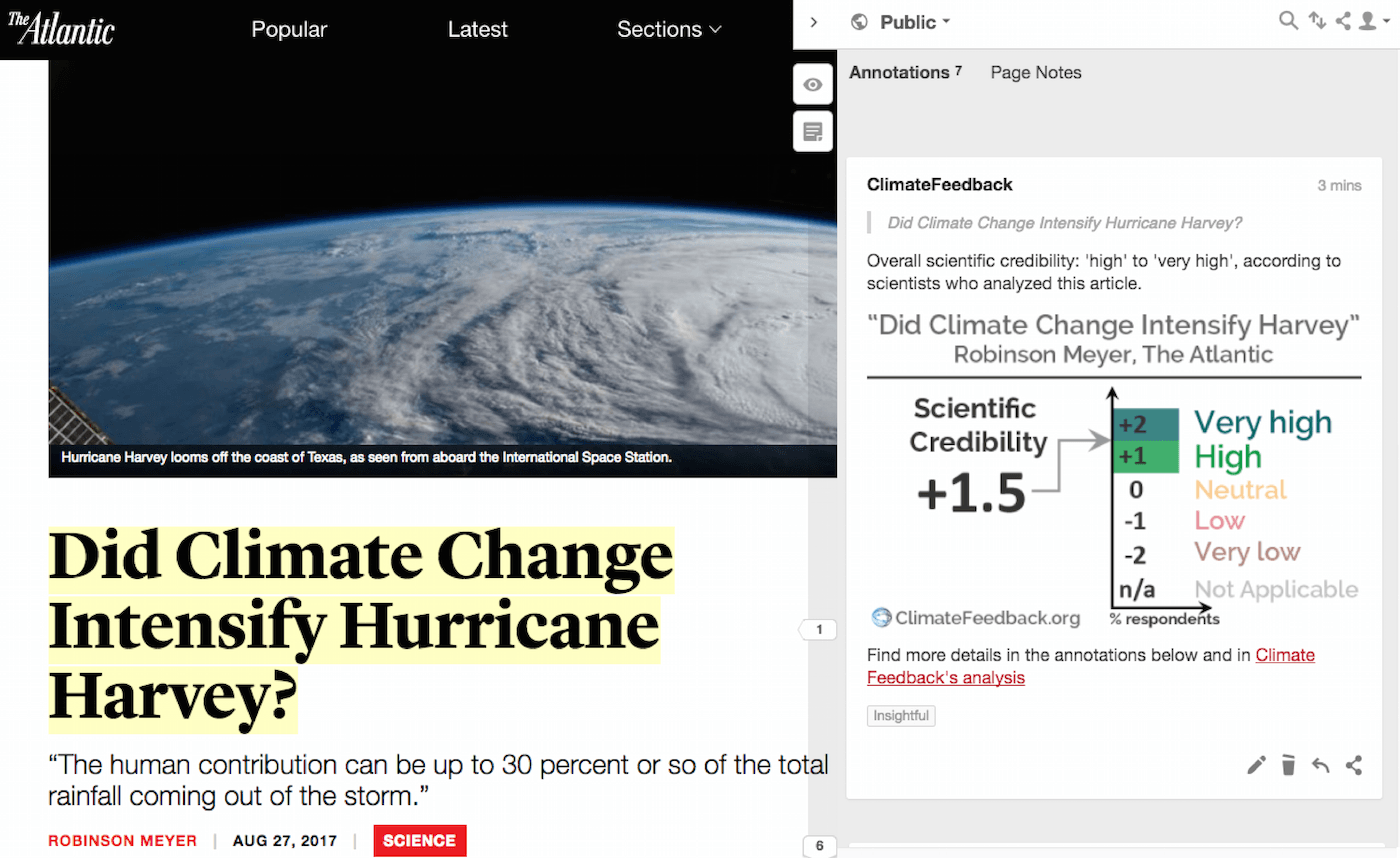
“A well written article that captures the essence of our understanding that under climate change storms will likely bring more rainfall. In the case of Harvey, all we can say is that it is consistent with those ideas. But we cannot say that it is the direct consequence of climate change.”
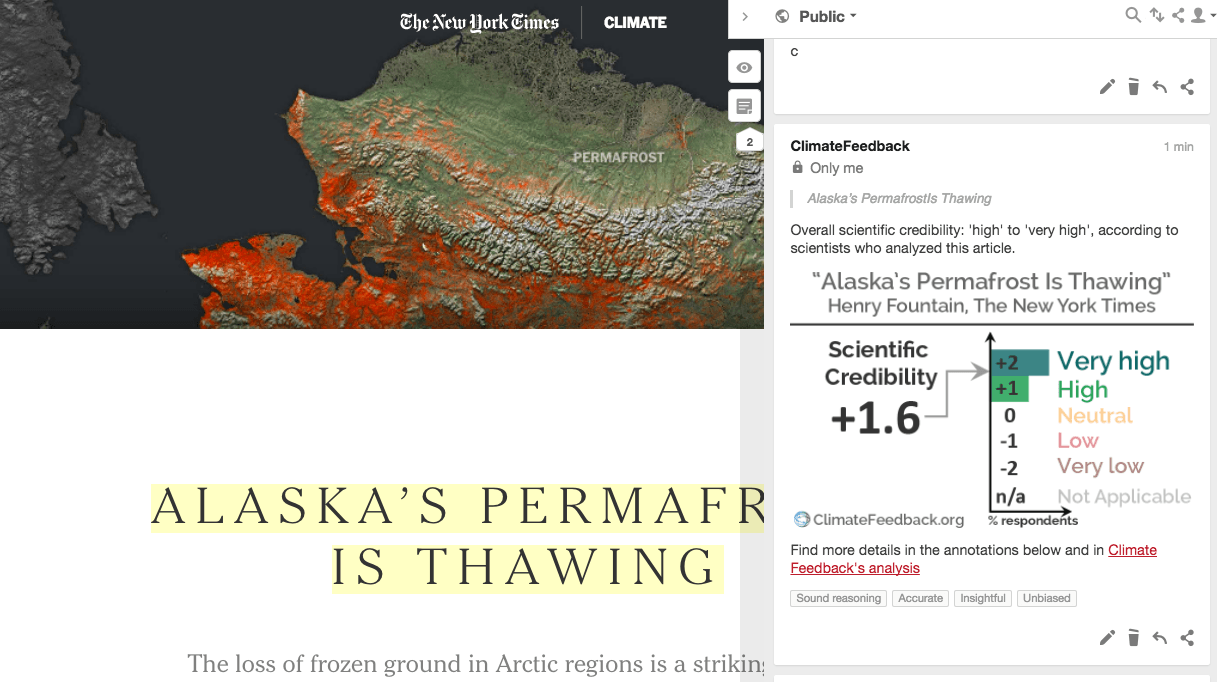
“The article is accurate in its descriptions of the physical and ecological processes that are behind permafrost changes. It also does a good job of getting across the nature of the work of actual scientists working in the field, what they are doing and why they are doing it.”
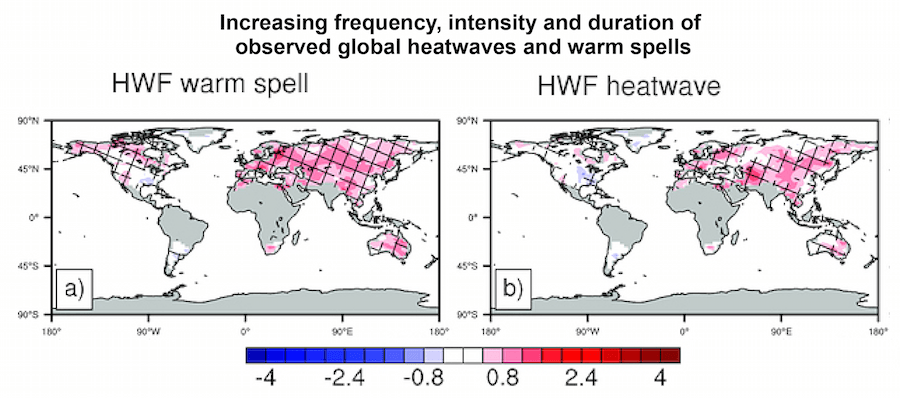
Claim:
The IPCC, the Intergovernmental Panel on Climate Change, which is sort of the voice of the consensus, concedes that there has been no increase in extreme weather events.
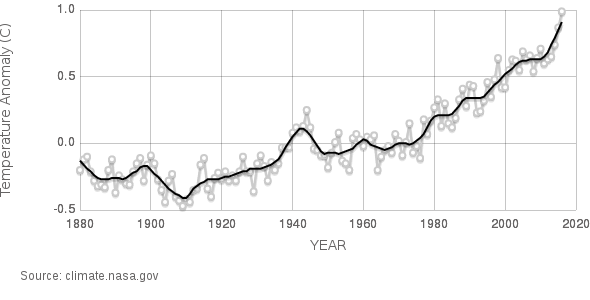
Claim:
according, again, to the official figures—during this past 10 years, if anything, mean global temperature, average world temperature, has slightly declined
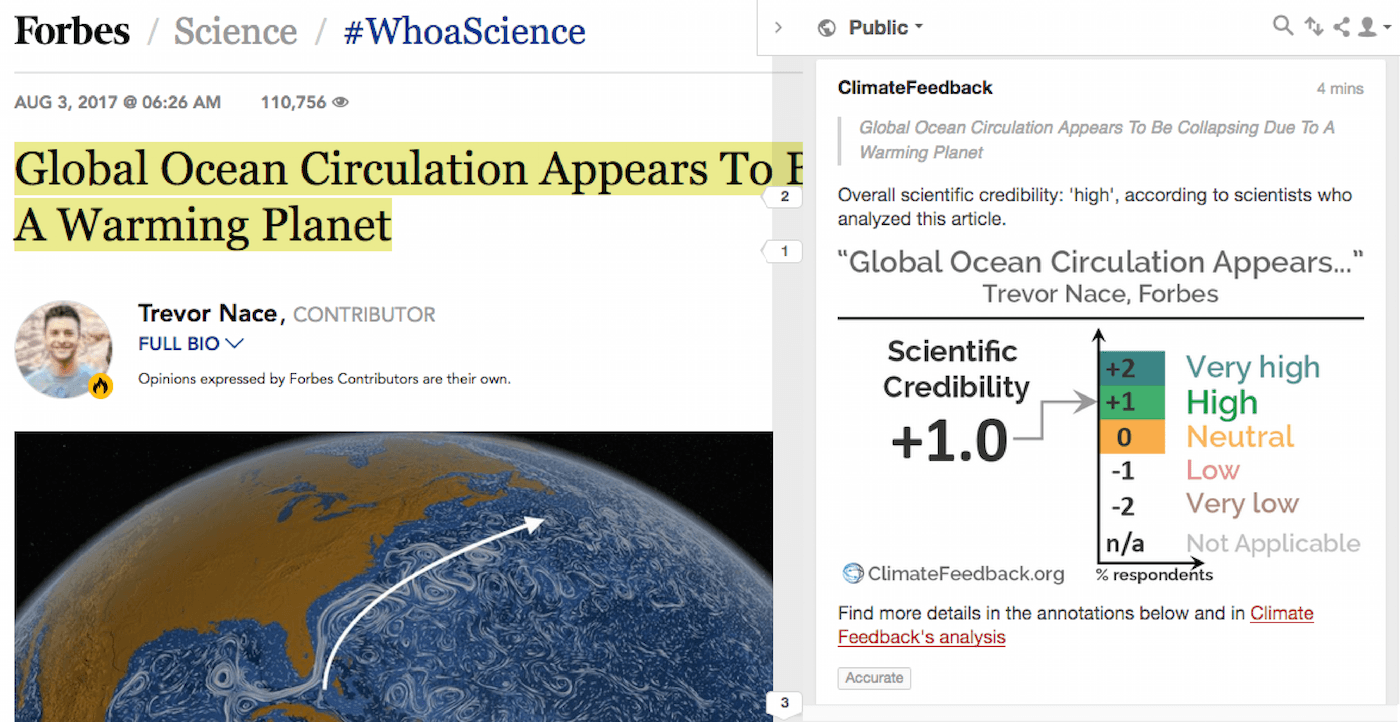
“This is an accurate, concise summary of the slowdown of the Atlantic Meridional Overturning Circulation (AMOC) and its possible future states. There are a couple of minor issues: specifically, one of the links goes to an irrelevant article, and it would be useful to have a couple more citations to the scientific literature. The title is possibly a little overstated; I might instead say that the AMOC is at risk of collapsing in a warming world.”
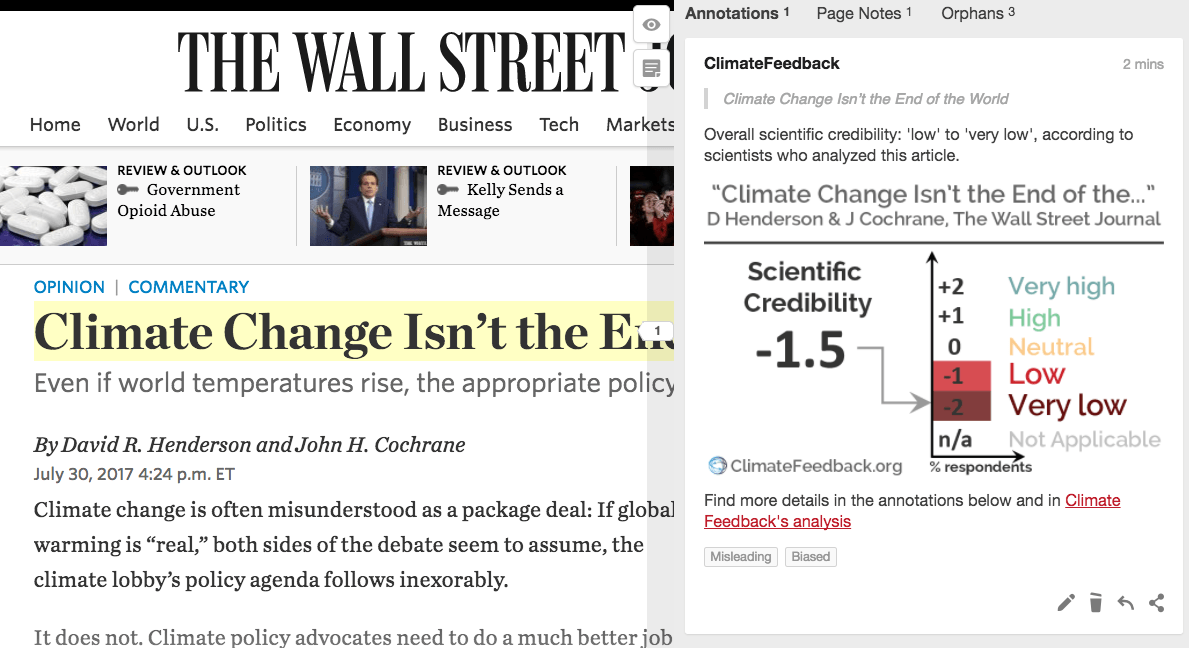
“This is a very simplistic, almost naive op-ed on climate change impacts. Some assertions such as the one about CO2 being good for plants demonstrates that the authors do not know or understand how increasing CO2 is good or bad for plants, they are just repeating something they heard.”
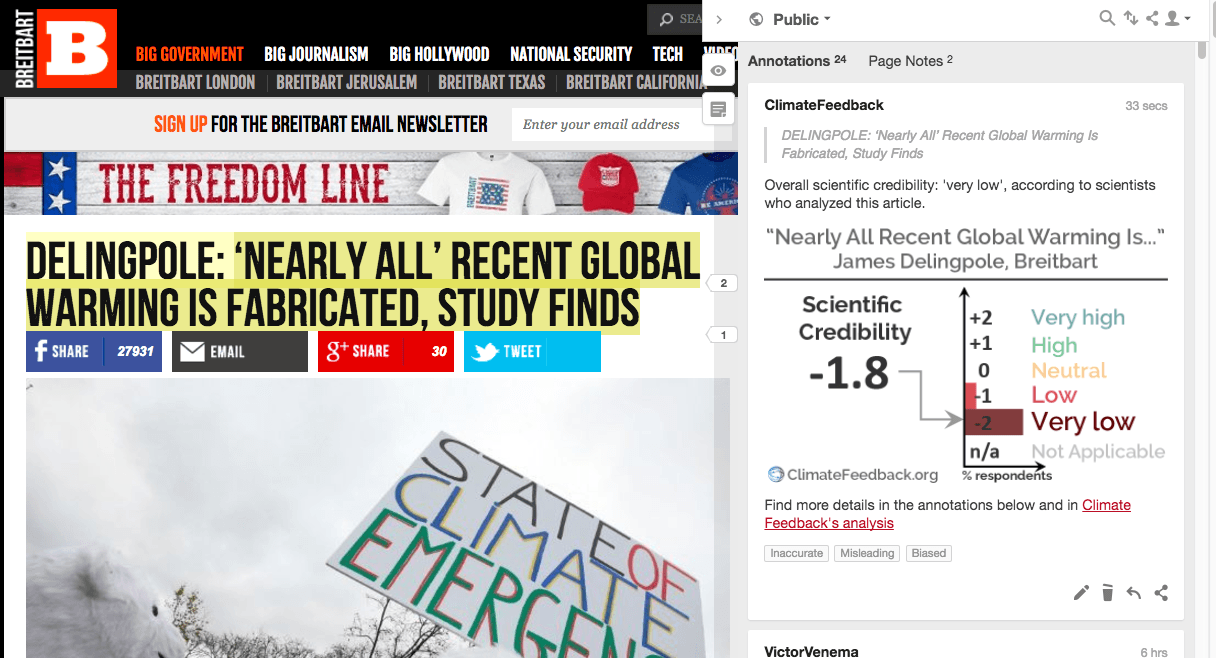
“In a cursory attempt at both reporting and climate science, the author glibly highlights a document heavy on accusation and light on reasoned engagement with fact. Implying nefarious motives behind temperature measurement bias correction without providing readers any indication of why this is necessary is misleading and a dereliction of the author’s journalistic responsibility.”
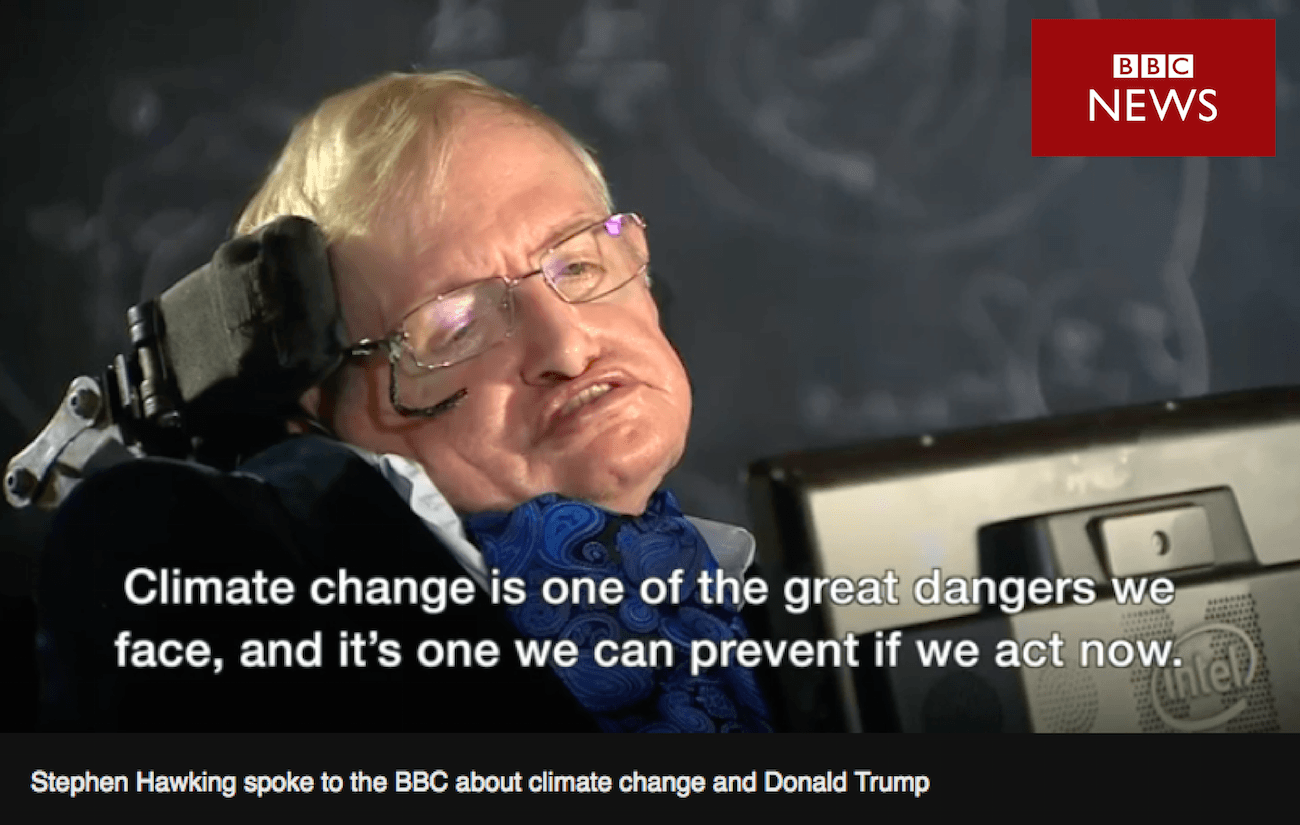
While Hawking’s comparison with Venus is misleading, the interview also includes comments about the impacts of inaction on climate change that are well supported by science. But Hawking undermines his argument by mixing in inaccurate hyperbole to support his point.